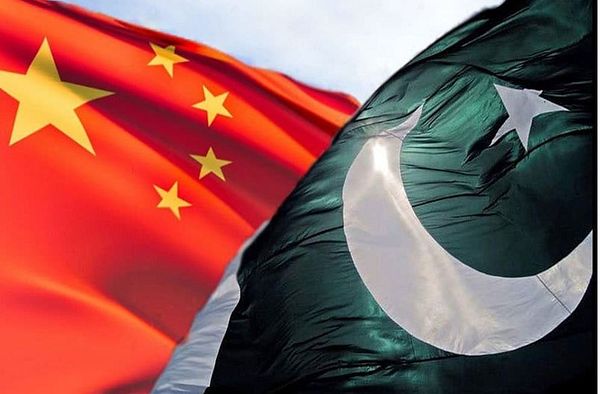Pakistan-China Relations and the Fall of Afghanistan
The Diplomat author Mercy Kuo regularly engages subject-matter experts, policy practitioners, and strategic thinkers across the globe for their diverse insights into U.S. Asia policy. This conversation with Elizabeth Threlkeld – senior fellow and deputy director of the South Asia Program at the Stimson Center – is the 285th in “The Trans-Pacific View Insight Series.”
Explain Islamabad’s strategic calculus of a Taliban-led Afghanistan post-U.S. withdrawal.
Analysts and officials in Pakistan believe the Taliban’s victory serves dual purposes. It helps Pakistan to secure its interests in Afghanistan both by having a friendly group in charge of the government and by limiting the space for Indian engagement in Kabul. Pakistan has long accused regional rival India of working to destabilize its western border region via Afghanistan. With the Taliban in power, the sense in Islamabad is that alleged foreign support for terror groups like the Tehreek-e-Taliban Pakistan (TTP) and for Pashtun and Baloch nationalist groups will diminish. In addition, Pakistan hopes that a Taliban-led government will provide it with opportunities to expand its geoeconomic footprint as it seeks to connect Central Asia with access to the Arabian Sea at Gwadar. This strategy expects that the Taliban will both be able to effectively stabilize Afghanistan and prevent anti-Pakistan groups from launching attacks, both of which are questionable assumptions.
How could Beijing capitalize on the U.S. withdrawal from Afghanistan to advance China’s geostrategic interests in the region?
For China, the U.S. withdrawal from Afghanistan is more of a liability than an opportunity. Beijing views its interests in Afghanistan through the lens of domestic security first and foremost, and the prospect of intensified conflict on its western border is alarming. In particular, China is concerned about the presence and potential growth of Uyghur militancy in Afghanistan, including the Turkestan Islamic Party (TIP). China’s priority will be to shore up its defenses from this threat, and has already sought Taliban assurances that the group would not be allowed to operate in Afghanistan. While some commentators argue that the U.S. withdrawal gives China access to Afghanistan’s mineral wealth and strengthens its Belt and Road Initiative, Beijing has made little headway on its current investments in Afghanistan and is wary of getting bogged down in an unstable environment. Beijing has, however, sought to use the U.S. withdrawal to paint America as an unreliable partner in the region, particularly targeting those countries Washington is keen to work with in its Indo-Pacific strategy.
Enjoying this article? Click here to subscribe for full access. Just $5 a month.
What is the impact of the fall of Afghanistan to the Taliban on Pakistan-China relations?
While Pakistan views the Taliban takeover as a positive development, China is less sanguine. In the unlikely event that the Taliban are able to effectively stabilize and govern Afghanistan while reining in militant groups, the result could be a boon for the bilateral relationship and investment via a potential expansion of the China-Pakistan Economic Corridor (CPEC). The far more likely outcome, however, is renewed instability that could threaten Chinese investments in Pakistan under CPEC. TTP has already launched attacks against Chinese targets in Pakistan, including a bombing that killed several Chinese engineers in July and an apparent assassination attempt against the Chinese ambassador in April. Should such attacks increase, Beijing could further slow its projects in Pakistan while pressuring Islamabad to ensure security. Pakistan will remain a useful go-between for China given its ties to the Taliban, but the group’s rise could put a strain on the “iron brotherhood.”
Diplomat Brief Weekly Newsletter N Get briefed on the story of the week, and developing stories to watch across the Asia-Pacific. Get the Newsletter
Analyze the resurgence of Islamic radicalism and implications for China’s anti-Muslim policies.
The Taliban’s return to power in Afghanistan represents a major propaganda victory for militants across the region, including the TIP and other China-focused groups. TIP’s Syria-based chapter issued a congratulatory statement praising the establishment of an “Islamic Emirate” in Afghanistan soon after the Taliban swept into Kabul. These developments are concerning for Beijing, which will likely seek to manage the threat both by pressuring the Taliban and other regional governments to crack down on Uyghurs abroad and by further ratcheting up its draconian policies in Xinjiang – risking domestic radicalization.
The Taliban thus far appear willing to play ball with China. The group’s spokesman said he lacked details on the situation in Xinjiang but would take up any issues with the government in Beijing, echoing Pakistan’s talking points in dodging difficult questions related to China’s treatment of Muslims. This should give China some comfort that the Taliban may be open to potential offers of aid and recognition in exchange for limited cooperation, though this is unlikely to fully protect Chinese interests.
Identify the top three geopolitical risks from the fallout in Afghanistan facing the U.S. policymakers and implications for U.S. South Asia policy.
U.S. policymakers should be most focused on three key challenges following the Taliban takeover in Afghanistan – counterterrorism, refugee outflows, and strategic stability in South Asia. Managing the terrorist threat in Afghanistan remains a priority post-withdrawal, and one the United States will have to manage via its over-the-horizon capabilities, likely in quiet coordination with the Taliban-led government.
The prospect of mass movements of refugees out of Afghanistan is another serious concern for policymakers given both the challenges of providing for displaced Afghans and the political impact that such outflows would have across the region, in Europe, and elsewhere. It argues for a focus on limiting future instability and humanitarian crises in a Taliban-led Afghanistan, even if doing so reduces the leverage the U.S. and its partners are able to exert.
Finally, in a region with three nuclear powers, the risk that an attack emanating from Afghanistan could spark a regional crisis should be front of mind for policymakers. The best way to avoid such an outcome is to limit the risk of escalation before it begins by investing in regional diplomacy, including through confidence building measures.












